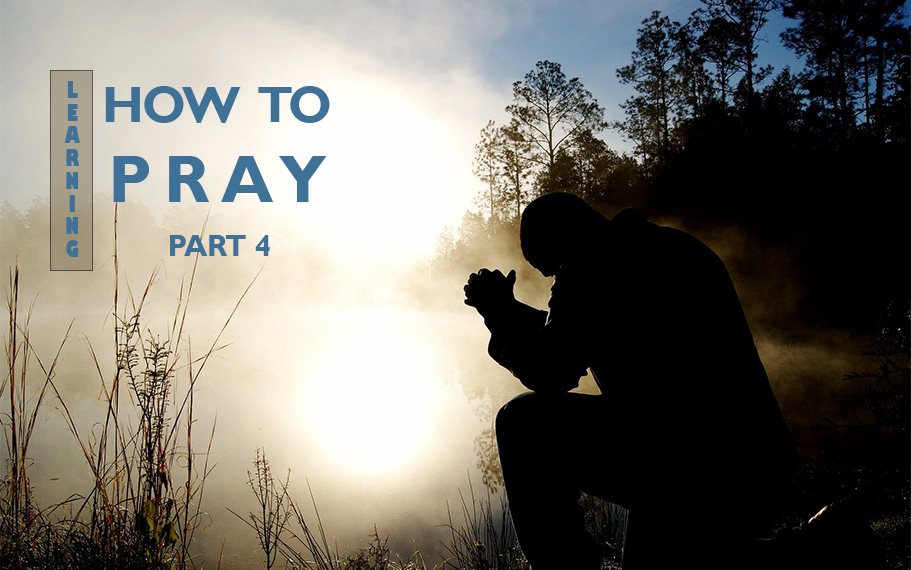This is the final part of our series entitled “Learning How to Pray” based on Matthew 7:7-11. Using the acrostic ASK, we have seen that Jesus taught the varying attitudes we must have to receive the treasures of the kingdom of God. He dispenses some treasure based on our asking. We saw that God, our heavenly Father, wants to freely give us what we need. But some of the treasure He wishes to dispense requires a more serious attitude, that of seeking. Jesus taught that we must “…seek first the kingdom of God” if we are to make it our own. If we’re not careful, we can make the mistake of ‘asking for the kingdom’ and ‘seeking our needs’ instead of ‘asking for our needs’ and seeking first the kingdom.’
The final teaching on learning to pray is based on the final word, knock. Jesus taught us to “knock (and keep on knocking), and it will be opened to you” (Matthew 7:7). What does the word knock signify regarding prayer? Knocking involves praying that God will open doors to give away what you have received and what you have found by seeking. In other words, the treasure is not for you‑it’s for others! In this teaching, Jesus instructs his disciples to actively seek opportunities to give away what they received from the Father in heaven.
The apostle Paul is a great example of a man who continually sought opportunities to give away God’s treasure. In the letter he wrote to the Colossians, he asks the believers there to pray for God to give him opportunities to give away God’s treasure:
“At the same time, pray also for us, that God may open to us a door for the word, to declare the mystery of Christ on account of which I am in prison— that I may make it clear, which is how I ought to speak” (Colossians 4:3-4, italics mine).
You can see in Paul’s request for God to open a door to preach the Gospel his continual pursuit of open doors for the Gospel, no matter what his outward circumstances were. And that’s important because Colossians is one of the “Prison Epistles” Paul wrote while imprisoned in Rome. In that regard, we should note what he didn’t ask for. There is no mention of his asking for prayer that he might be released from prison. Instead, he always asks God to open doors to share the Gospel.
There are two attitudes that the example of the apostle corrects in these verses. First, it deals with passivity when it comes to sharing the Gospel. What I mean by that is that many believers do not have the attitude of Paul when it comes to knocking on doors to open to share the Gospel. Rather, they assume a passive position. In other words, instead of knocking on doors to open, they wait for God to knock on their door. Those who do so often speak of ‘waiting on God.’ But Jesus didn’t say that we should wait for Him to knock on our door, but that we should constantly knock on doors to open to share the Gospel. Paul also requests that the saints pray that he might make it clear as he ought to speak. That’s an amazing request since we would assume that if anyone had the ability to make the gospel clear, it was the apostle Paul. But Paul depended on the Spirit to give him utterance so he might have a fresh exposition each time he opened his mouth.
The second attitude the apostle seeks to correct in Colossians 4:3-4 is the opposite of passivity. We knock three or four times, and when the door doesn’t open, we tear it off the hinges! Everyone has experienced bogarting their way into ministry situations that God didn’t open, but you forced your way in. I remember wanting to demonstrate to some younger brothers the power of God in my life when they were trying to cast a demon out of a girl and couldn’t. I assumed that it would only take me five or ten minutes. But eight hours later, I wondered if it would ever end.
This concludes our blog series, Learning How to Pray. In this series, we learned from the Master Prayer Himself the three levels of prayer. We first learned that God calls us to ask for our needs to be met, seek for his kingdom, and knock for doors to open to give away the treasure we received. Let us practice these three aspects of prayer continually as the Master instructs.



0 Comments